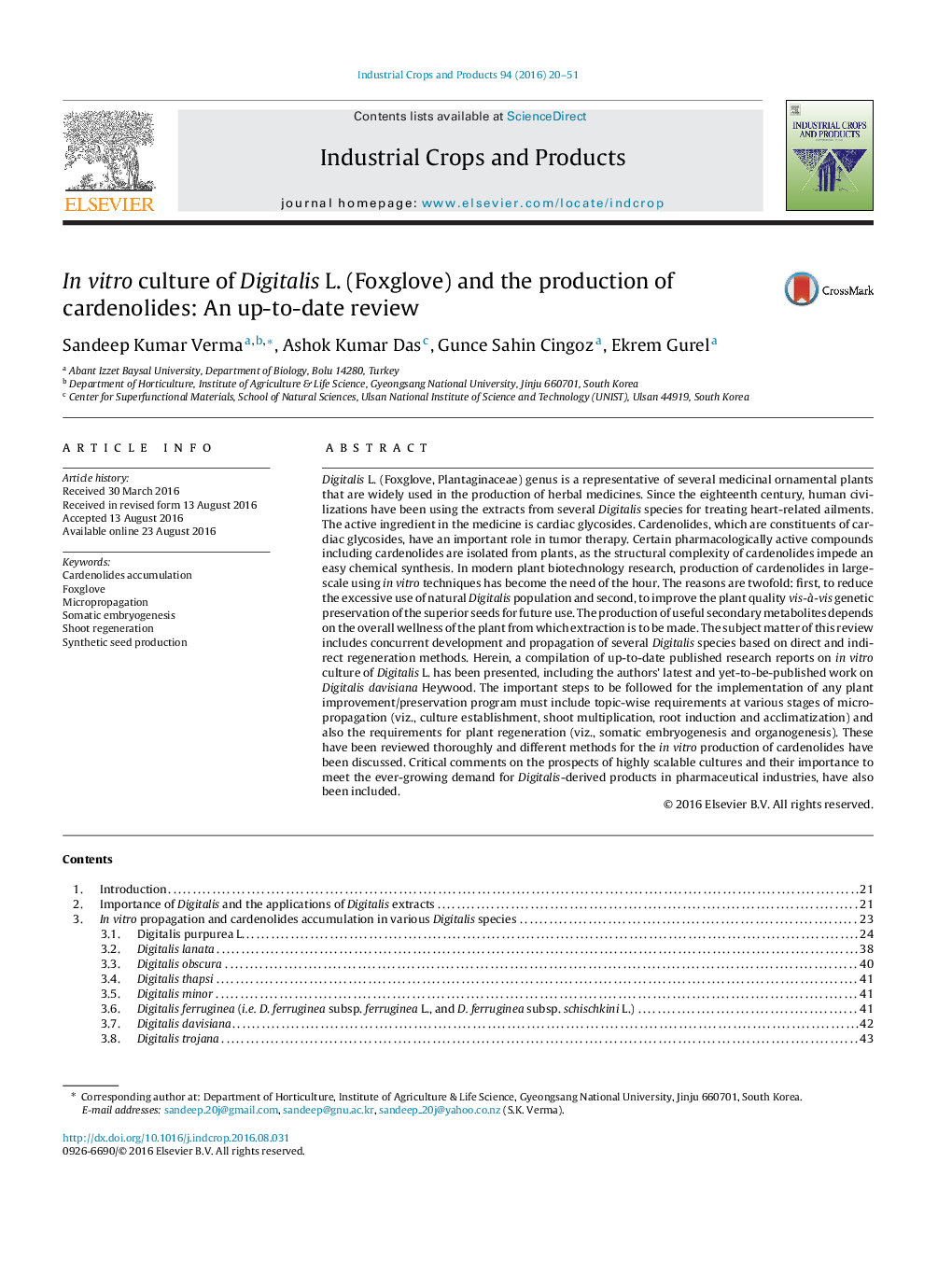| Article ID | Journal | Published Year | Pages | File Type |
|---|---|---|---|---|
| 6375361 | Industrial Crops and Products | 2016 | 32 Pages |
â¢There are 20 species of herbaceous perennials, shrubs and biennials that are commonly called foxglove.â¢Many of these have medicinal uses in improving healthcare.â¢And are exploited for the production of cardenolides by the pharmaceutical industries.â¢A compilation of up-to-date published research reports on in vitro culture of Digitalis L. is provided.â¢Different methods for the in vitro production of cardenolides have been reviewed and compared.
Digitalis L. (Foxglove, Plantaginaceae) genus is a representative of several medicinal ornamental plants that are widely used in the production of herbal medicines. Since the eighteenth century, human civilizations have been using the extracts from several Digitalis species for treating heart-related ailments. The active ingredient in the medicine is cardiac glycosides. Cardenolides, which are constituents of cardiac glycosides, have an important role in tumor therapy. Certain pharmacologically active compounds including cardenolides are isolated from plants, as the structural complexity of cardenolides impede an easy chemical synthesis. In modern plant biotechnology research, production of cardenolides in large-scale using in vitro techniques has become the need of the hour. The reasons are twofold: first, to reduce the excessive use of natural Digitalis population and second, to improve the plant quality vis-Ã -vis genetic preservation of the superior seeds for future use. The production of useful secondary metabolites depends on the overall wellness of the plant from which extraction is to be made. The subject matter of this review includes concurrent development and propagation of several Digitalis species based on direct and indirect regeneration methods. Herein, a compilation of up-to-date published research reports on in vitro culture of Digitalis L. has been presented, including the authors' latest and yet-to-be-published work on Digitalis davisiana Heywood. The important steps to be followed for the implementation of any plant improvement/preservation program must include topic-wise requirements at various stages of micropropagation (viz., culture establishment, shoot multiplication, root induction and acclimatization) and also the requirements for plant regeneration (viz., somatic embryogenesis and organogenesis). These have been reviewed thoroughly and different methods for the in vitro production of cardenolides have been discussed. Critical comments on the prospects of highly scalable cultures and their importance to meet the ever-growing demand for Digitalis-derived products in pharmaceutical industries, have also been included.
